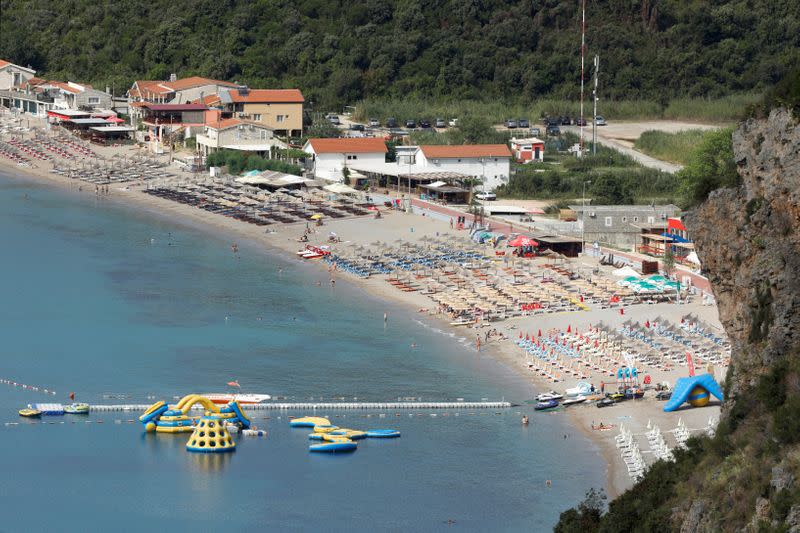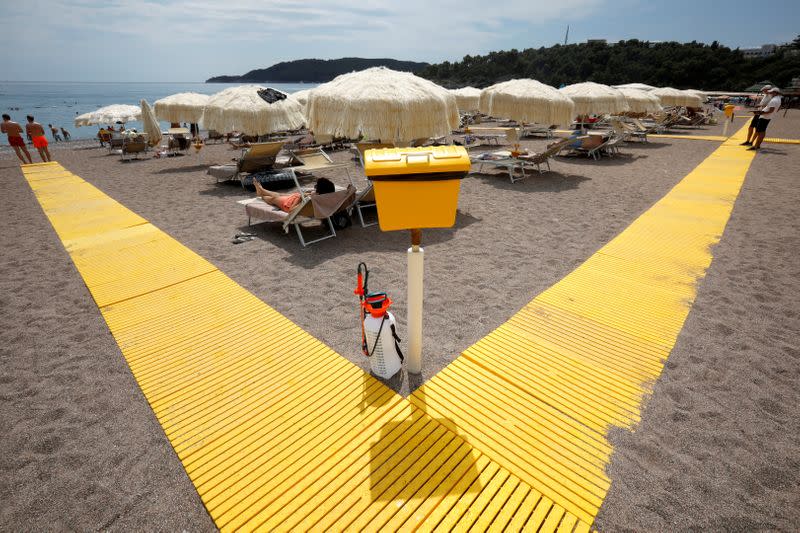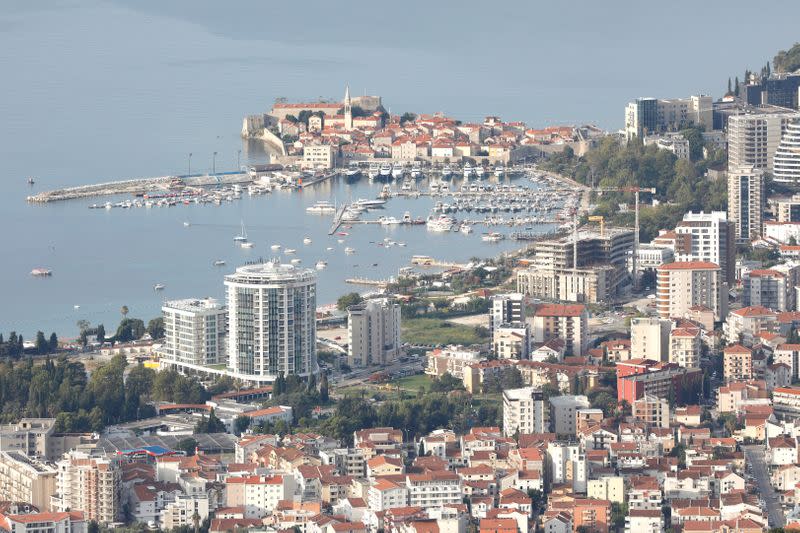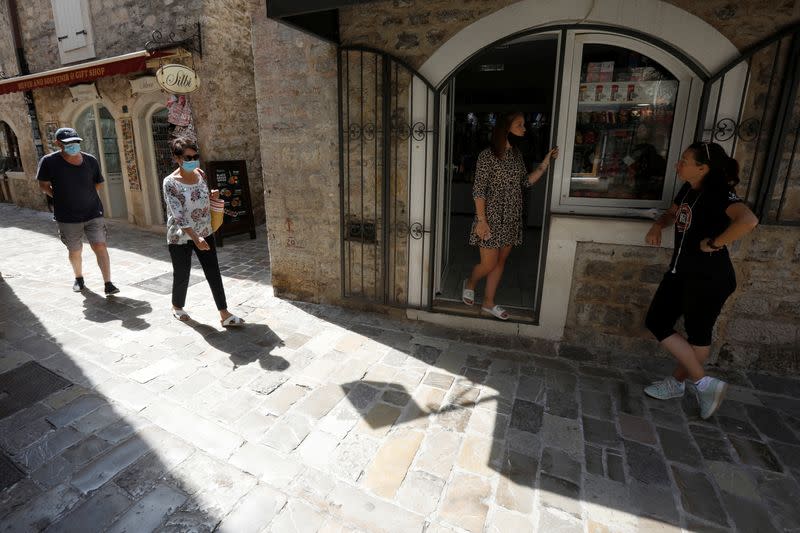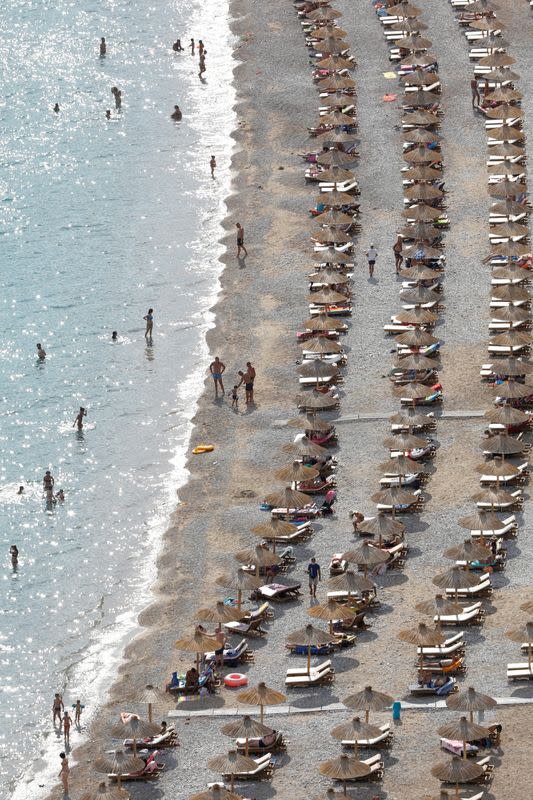Montenegro hopes Russians can salvage its tourist season
BUDVA, Montenegro (Reuters) - Beaches along Montenegro's Adriatic coast, normally packed with tourists in August, were largely empty last week in a sign of how badly the coronavirus is hurting the country's economy.
Revenues from the summer tourist season are expected to drop by around 90% from 280 million euros ($330 million) in 2019. Tourism accounts for more than 20% of Montenegro's economy.
In the coastal resort of Budva, patrons in cafes were few and far between. Krsto Niklanovic gazed at the sea from his restaurant's empty terrace.
“The turnover now is at about 12% compared to the same date last year,” Niklanovic told Reuters on Sunday.
To salvage the season, Montenegro last week opened its borders to Russians, who normally make up a third of the 2.6 million tourists visiting annually. Russia must still adopt reciprocal measures before its tourists start arriving.
Ties between Podgorica and the Kremlin soured after Montenegro joined NATO in 2016, but Russians still own around a third of all the foreign companies and real estate in the country.
Zeljka Radak-Kukavicic, head of Montenegro's Tourist Organisation, said the arrival of the Russians would help.
"I believe ... we will manage ... to at least minimize the effects of the previous seven months," she said.
Montenegro in March closed borders, airports and seaports, and banned public gatherings and outdoor activities. Prime Minister Dusko Markovic declared the country coronavirus-free on May 25, but cases rebounded in mid-June.
So far, 3,618 of Montenegro's 620,000 people have caught COVID-19 and 64 have died, far less than elsewhere in the region.
Zarko Radulovic, co-owner of the Montenegro Stars hotel chain, said an increase in cases could ruin hopes for a recovery this season.
"If there are 300 (more) ill, God forbid, everything goes down the drain," he said.
(Reporting by Nikola Barovic and Stevo Vasiljevic; Writing by Aleksandar Vasovic; Editing by)

 Yahoo News
Yahoo News 